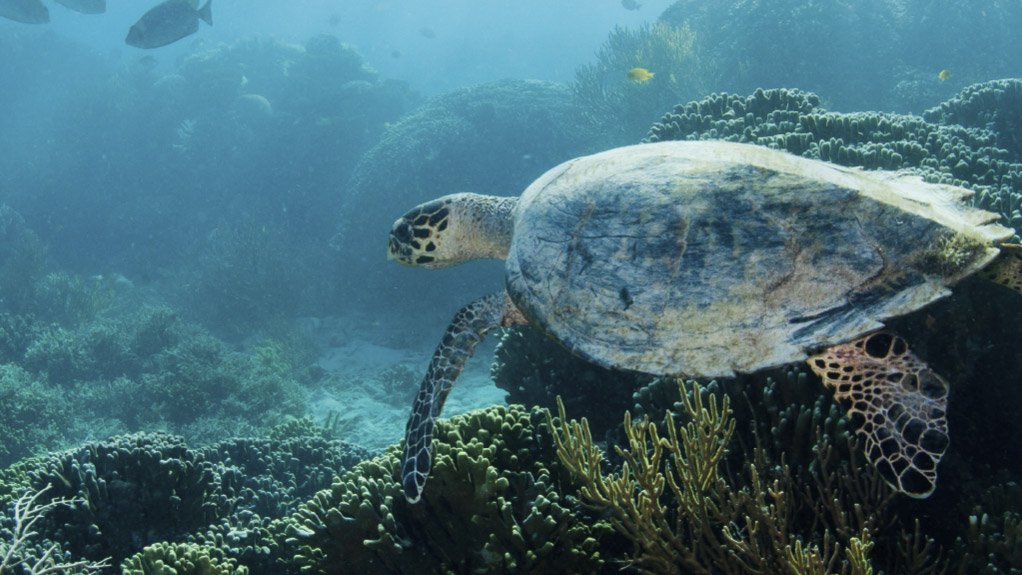- Turtles Under Threat18.96 MB
New Greenpeace report, introduced by Scientist Damien Chevallier
After millions of years on this planet, it is scarcely believable that time is running out for sea turtles. But so it is. And our generation is pivotal in deciding their future.
The seven species of sea turtles are some of the most mysterious and charismatic inhabitants of the oceans. Their ancestors shared the planet with dinosaurs, and they have thrived ever since. It has been my fortune and privilege to spend many years studying these magnificent creatures, including in my role as head of the research program on sea turtles at the Institut Pluridisciplinaire Hubert Curien (IPHC) of Centre National de la Recherche Scientifique (CNRS).
I have observed nesting turtles on the tropical sandy beaches of Suriname, French Guiana and the Caribbean, and GPS and Argos tracking has allowed me and fellow French Guiana-Caribbean collaborators to follow their paths as they cross the ocean on epic migrations to find the best foraging grounds.
Turtles are difficult to observe for much of their life, since they spend so much of it in the open ocean: international waters far from the coast. In concert with the efforts of other turtle researchers around the world, studies like those we carried out by have helped understand this nomadic life. In turn, it has shown how important sea turtles are to so many different habitats around the world, and how these habitats are so dependent on one another. Turtles occupy a crucial niche in many ecosystems – green turtles graze tropical seagrass beds, while adult hawksbills make their homes on coral reefs, and enormous leatherbacks dive hundreds of metres below the surface in the cool waters of the North Atlantic in search of jellyfish.
Sadly, dedicating one’s life to researching and observing turtles means that we, as a scientific community, are also witnesses to the serious and growing threats to these incredible animals. I have observed first hand the steep decline in the number of turtles nesting on the beaches where we carry out our work. Turtles have always been prized by humans for their meat, their eggs and their beautiful shells, which led to them being over-hunted for hundreds of years. The pressure on turtles has not abated in recent times, and now the number of eggs laid on beaches in French Guiana is 250 times smaller than in the 1990s. Today, turtles are threatened by humans in even more ways. Industrial fishing. Plastic pollution. And looming over all of this: the twin catastrophes of ocean acidification and climate breakdown, as they alter habitats, ecosystems and the very chemistry of the ocean.
In 2019, I collaborated with Greenpeace1 to tag ten leatherback turtles at their nesting beaches in French Guiana. We were thrilled to learn that nine of them proceeded to swim thousands of kilometres north across through the Atlantic ocean: staggering distances, even reaching as far as Nova Scotia in Canada and France. Tragically, we also saw how one of them was found washed up just 120km from the nesting beach, drowned in a fishing net. It was a stark reminder of humanity’s impact on the natural world. Ocean wildlife is being rapidly degraded around the globe, with thousands of animal and plant species threatened with extinction, including sea turtles.
But this information must galvanise us to action. We must create sanctuaries for wildlife to recover and thrive. This year, governments have a critical window of opportunity to do just that. A global treaty for our oceans is on the table at the UN, and its agreement is essential if we are to introduce marine protected areas of the scale needed to avert calamity for the oceans and the communities and creatures that depend on it. I am proud to back the call of many scientists globally, and to stand with Greenpeace, in calling for at least 30% of the world’s oceans to be fully protected by 2030. Turtles have travelled the world’s oceans for over 100 million years, but the stark truth is that if things continue as they are, they may not survive another century. We need urgent action to protect the oceans now.
Report by Greenpeace
EMAIL THIS ARTICLE SAVE THIS ARTICLE ARTICLE ENQUIRY
To subscribe email subscriptions@creamermedia.co.za or click here
To advertise email advertising@creamermedia.co.za or click here











